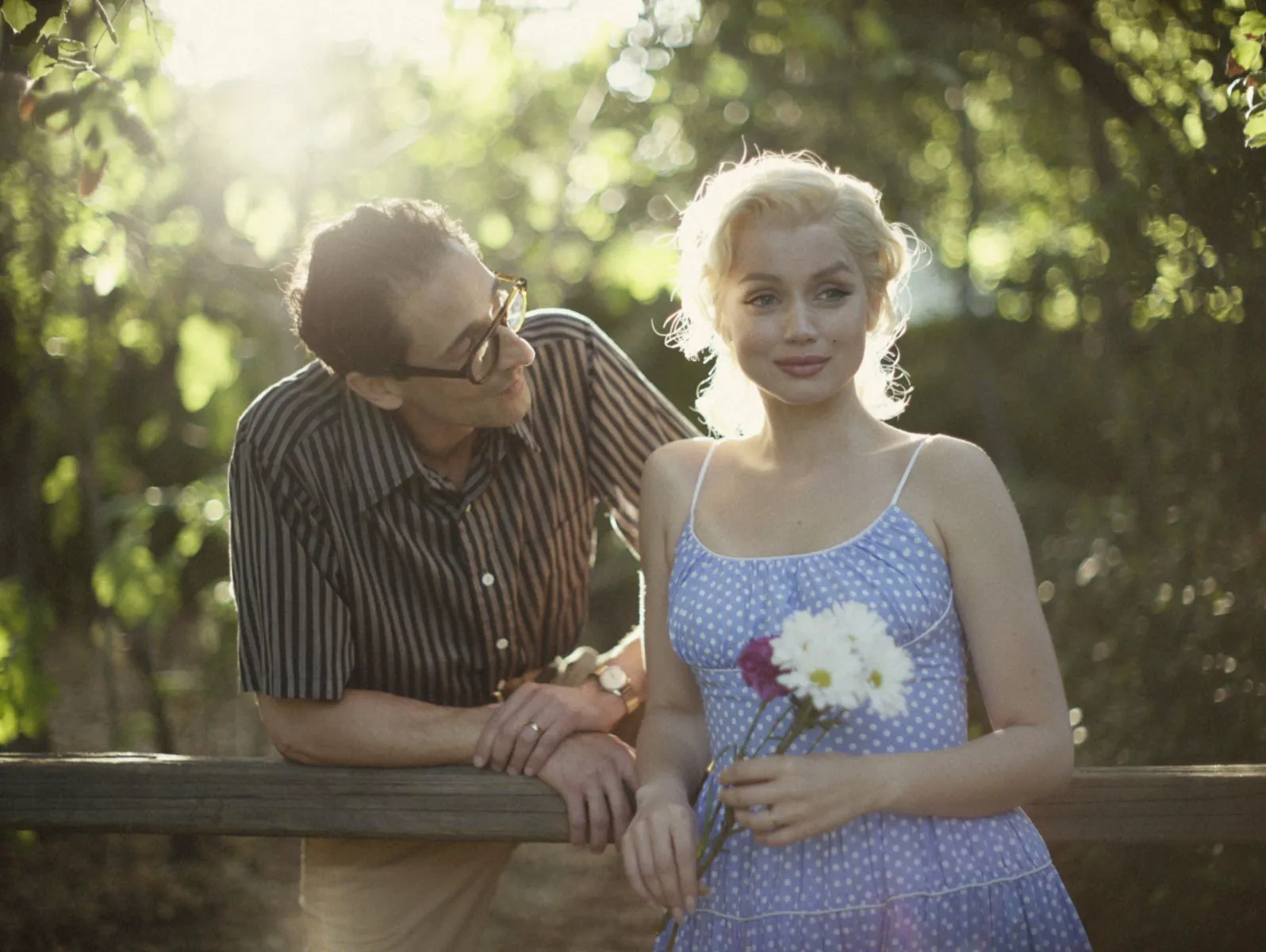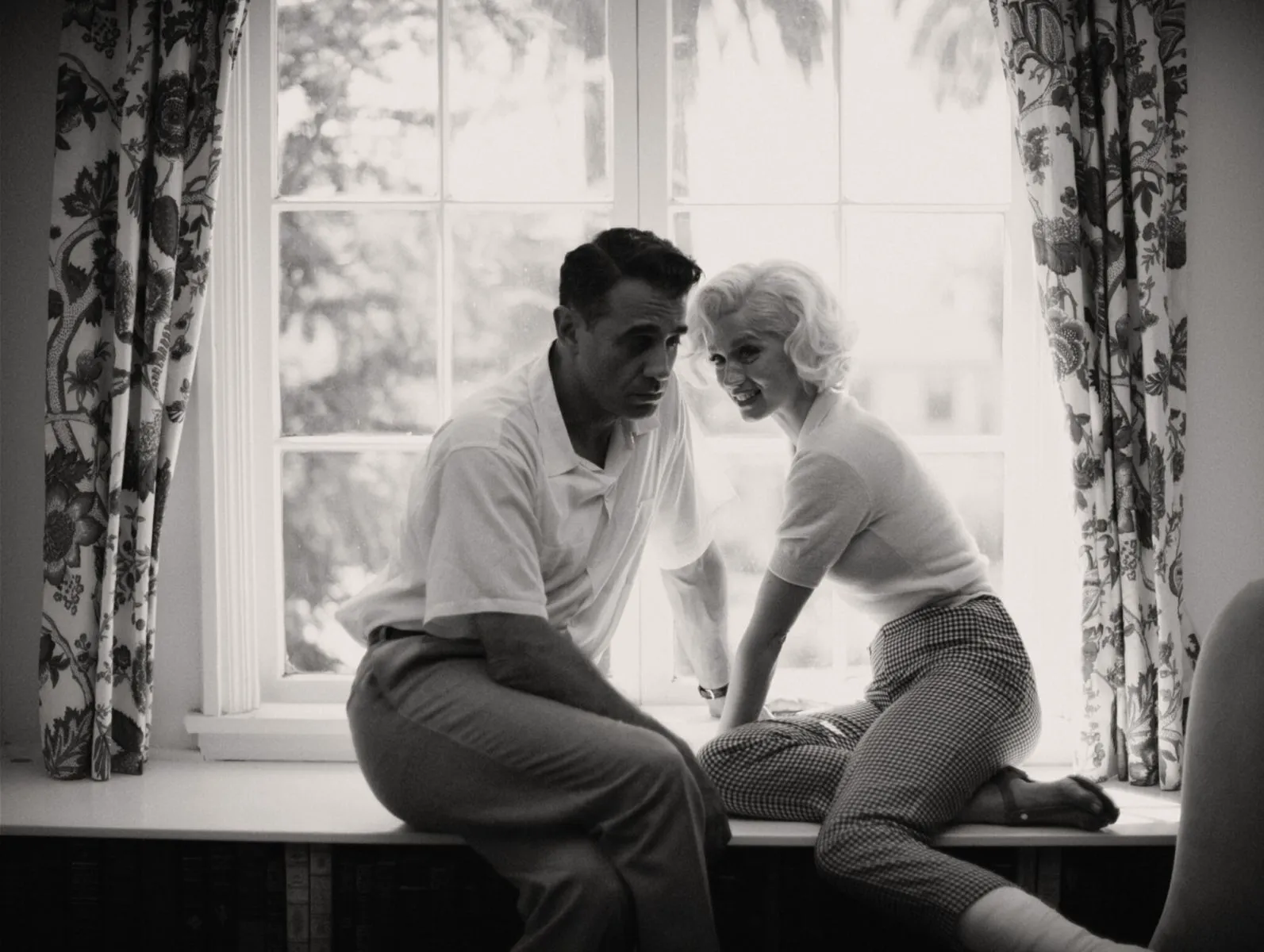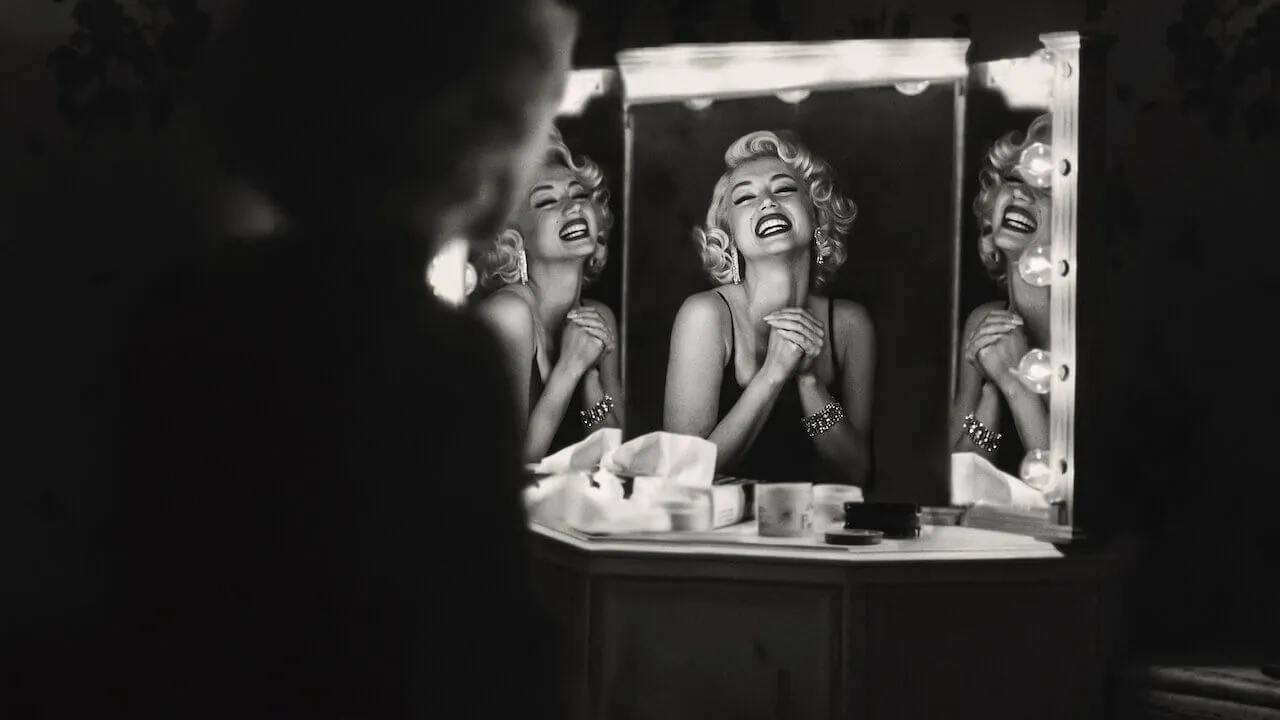Blonde: A Tragedy of Projections, Not Affection
In the realm of cinema, often hailed as a collective labor of love, Andrew Dominik’s controversial “Blonde” emerges as a project seemingly born from the throes of numerous, often conflicting, projections. This purported biopic draws its narrative from Joyce Carol Oates’ novel of the same name, a work widely regarded as a fictionalized take on Marilyn Monroe’s life, rather than an objective historical account. Dominik himself, a director primarily known for his exploration of masculine dramas, ventures into unfamiliar territory with a film centered around a woman. His own views on the iconic actress, even now, are tinged with a palpable disdain, referring to “Gentlemen Prefer Blondes” as a comedy about “dressed-up prostitutes.” This begs the question: why would Dominik undertake a project chronicling the tragic life and death of a star whose cinematic value he so openly dismisses? The result is “Blonde,” a film that feels more like a study in aversion than affection, paradoxically offering little insight into the woman behind the legend.

Ana de Armas as Marilyn Monroe in “Blonde”
The Roots of Trauma: A Childhood Lost
As the adage goes, the deepest wounds are often inflicted in childhood. “Blonde” opens with scenes of young Norma Jeane, the future movie star and object of global desire, neglected by a detached father figure and a mentally unstable mother. As the protagonist matures, her pervasive sense of inadequacy intensifies, relentlessly seeking an outlet. Hollywood becomes that outlet. The strikingly beautiful Marilyn, portrayed by Ana de Armas, bravely embarks on a quest for love and recognition in a world where dreams are both realized and shattered.

Ana de Armas as Marilyn Monroe in “Blonde”
A Surreal Nightmare
From its initial scenes, “Blonde” unsettles even those unfamiliar with Marilyn Monroe’s biography. This isn’t solely due to the exaggerated, almost grotesque, depictions of the actress’s early childhood, but rather the palpable unreality permeating the screen. The protagonist’s life unfolds like a bizarre, surreal nightmare reminiscent of another famous blonde, Laura Palmer. However, unlike the ethereal “fire” that fueled David Lynch’s iconic character, inspiring and captivating audiences, the torment consuming Norma Jeane is unsettling and alienating, evoking an instinctive sense of unease.

Ana de Armas as Marilyn Monroe in “Blonde”
A Puppet on Strings
Ironically, even in his unwavering conviction that Marilyn Monroe was “not a star, but just a blonde” (a direct quote from the film), Dominik manages to tap into the most vulnerable aspect of her being: an utterly uncontrolled, and at times overtly masochistic, desire to fulfill the childhood need for acceptance. This manifests through numerous admirers, older lovers whom she explicitly refers to as “daddy,” and ultimately, the children she never had. The problem lies in Dominik’s portrayal of Marilyn as a perpetually passive doll, a beautiful toy in the hands of powerful producers, a trophy in the achievements of men, and not as an independent individual capable of development, affection, or personal growth. Consequently, “Blonde” becomes a repository of gratuitous emotional and sexual exploitation (the scene involving oral sex in the President’s bedroom, presented as a profound exploration of the protagonist’s emotional state, is particularly egregious), with both Marilyn and Ana de Armas, the actress portraying her, becoming victims.
Technical Brilliance Amidst Emptiness
While “Blonde” may be emotionally vacant, its technical execution is undeniably polished. The cinematography by Chayse Irvin, known for his work on “BlacKkKlansman,” is captivating, with the camera both tenderly alluring and aggressively intrusive throughout the film. The musical score by Nick Cave and Warren Ellis also deserves commendation, partially compensating for the narrative’s emotional aridity.
Conclusion: A Flawed Biopic
Ultimately, the technical merits of “Blonde” fail to elevate it to the ranks of exemplary biographical films. This is not only because Andrew Dominik’s vision is riddled with his own, often vulgar, cognitive biases in his perception of Marilyn, but also because even the fictionalized life depicted in the film feels tragically incomplete.